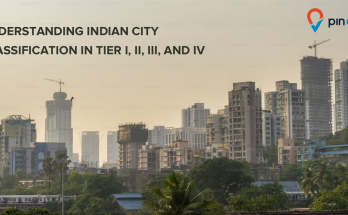The Real Estate (Regulation and Development) Act, 2016 (RERA) is an Act of the Parliament of India which seeks to protect home-buyers as well as help boost investments in the real estate industry. Here’s a snapshot of RERA and its impact on Real Estate.
Ongoing Projects also to come under RERA
For ongoing projects without Completion Certificate (CC), developers will have to deposit 70% of the amount collected from homebuyers in a separate bank account within 3 months of registering a project with RERA.
Equal Penalty
In case of delays, developers will be required to pay compensation to the allottees with an Interest Rate of SBI’s highest Marginal Cost of Lending Rate plus 2%. This effectively means a developer will have to pay interest rates of 11 to 12 % in case of a delay in project delivery.
Imprisonment
The rules also contain clauses providing for compounding of punishment with imprisonment for violation of the orders of Real Estate Appellate Tribunal against payment of 10% of project cost in case of developers and 10% of the cost of property purchased in case of allottees and agents.
No Discrimination
Discrimination in sale of properties on any grounds will also not be entertained under the new rules. Adjudicating Officers, Real Estate Authorities and Appellate Tribunals shall dispose of complaints within 60 days
Transparency
For ongoing projects that have not received Completion Certificate (CC), the developers will have to make public the original sanctioned plans with specifications and changes made later, total amount collected from allottees, money used, original timeline for completion and the time period within which the developer undertakes to complete the project.
Sale on Carpet area
The promoter shall also be required to declare the size of the apartment based on carpet area even if it was sold earlier on any other basis.
Financial Capacity
For registration of projects with the authorities, developers will be required to submit authenticated copy of PAN Card, annual report comprising audited profit and loss account, balance sheet, cash flow statement and auditors report of the promoter for the immediate three preceding years, authenticated copy of legal title deed, copy of collaboration agreement if the promoter is not the owner of the plot. The promoter will also has to declare information regarding the number of open and closed parking areas in the project.
Construction Status
The promoter will also have to upload details regarding number and type of apartments or plots. They will have to upload status of the project with photographs floor-wise, status of construction of internal infrastructure and common areas with photos. Even status of approvals received and expected date of receipt. Within 15 days of expiry of each quarter on the project website.
No Income Tax returns required
In a departure from the draft rules, the requirement of disclosing Income Tax returns has been withdrawn.
Detailed Description on RERA website
In addition to this, the RERA authorities will also publish information relating to profile and track record of promoters. Also, details of litigations, advertisement and prospectus issued about the project.
RERA for REAL ESTATE – Watch out Mr. Shantilal Kataria (President, CREDAI – Pune Metro) video to know more about Rules & Regulations of the RERA Act from industry experts & Government Officials.
Recent article in Media
Economic Times – Are on-going realty projects being covered under RERA in your state?
The real estate panorama is set to change soon. May 1, 2017, is the date when the Real Estate (Regulation and Development) Act, 2016 (RERA) becomes effective in the entire country.
So far, Gujarat, Uttar Pradesh, Madhya Pradesh and Odisha have finalised their rules. While Rajasthan, Karnataka, West Bengal, Maharashtra and Tamil Nadu have framed their draft rules. To Read more, click here.




Very interesting information!Perfect just what I was searching for! “I myself do nothing. The Holy Spirit accomplishes all through me.” by William Blake.